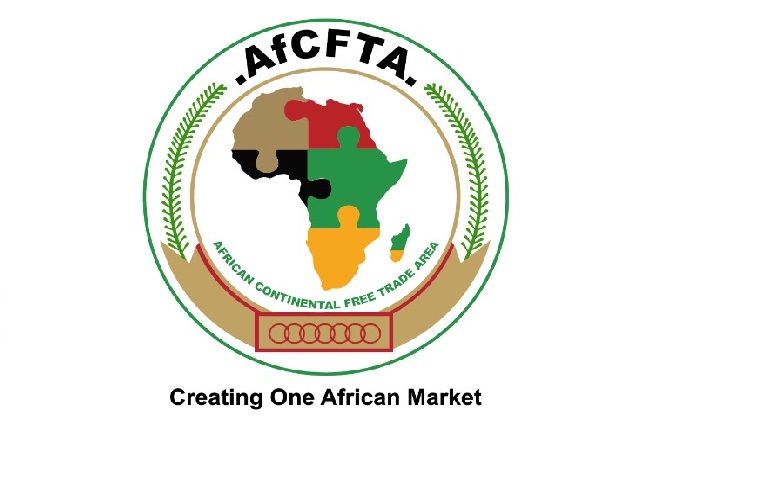The African Continental Free Trade Agreement (AfCFTA) presents a landmark opportunity for Nigeria to solidify its position as an economic leader in Africa and spearhead continent-wide growth. As Africa’s largest economy and most populous nation, Nigeria’s active participation is crucial for maximizing the agreement’s potential. AfCFTA offers access to a vast market of over 1.3 billion people and a combined GDP of $3.4 trillion, providing a platform for Nigeria to diversify its exports beyond its current reliance on oil, which has long hampered its economic stability. Experts believe that leveraging AfCFTA will enable Nigeria to promote its agricultural products, manufactured goods, and burgeoning service sectors, particularly fintech, which is poised to thrive in an increasingly digitized Africa. This diversification aligns with the AfCFTA’s overarching objective of significantly boosting intra-African trade, potentially adding billions to Nigeria’s non-oil revenue and contributing to sustainable development across the continent.
The potential benefits of AfCFTA for Nigeria are substantial, with projections indicating it could contribute significantly to the nation’s GDP and create millions of jobs in value-added sectors. The Nigerian Export Promotion Council estimates potential increases in non-oil revenue reaching $30 billion annually by 2035, while the World Bank forecasts that full implementation of the agreement could lift millions of Africans out of extreme poverty, with Nigeria being a major beneficiary. Furthermore, PwC projects substantial GDP growth for industrialized African nations like Nigeria, particularly through the development of sectors such as textiles, agro-processing, and pharmaceuticals. This growth potential is predicated on Nigeria’s focus on local manufacturing and the creation of a conducive environment for attracting foreign investment. The agreement also offers an unprecedented opportunity for Nigerian SMEs to access larger markets, bolstering both local and regional economic development.
Key figures, including the UN Deputy Secretary-General Amina Mohammed and Nigeria’s Minister of Finance Wale Edun, have underscored the importance of AfCFTA for Nigeria’s economic transformation. Mohammed urged Nigeria to leverage the agreement to lead the charge for regional growth and development, highlighting the UN’s commitment to supporting Nigeria in achieving its developmental goals. Edun emphasized the Tinubu administration’s efforts to address socio-economic challenges through initiatives like digitizing Direct Benefit Transfers, aimed at increasing efficiency and transparency in social welfare programmes. Olusegun Awolowo, the National Coordinator of the Nigeria AfCFTA Coordination Office, emphasized the agreement’s potential to stimulate industrialization, create employment opportunities for Africa’s young population, and promote inclusive economic growth. He underscored that increased trade is vital for addressing poverty, unemployment, and economic stagnation.
However, significant challenges remain, particularly in overcoming trade barriers. Nigeria’s previous border closure demonstrated the detrimental effects of restrictive cross-border policies. To fully capitalize on AfCFTA, Nigeria must prioritize streamlining customs processes, reducing tariffs, and investing heavily in infrastructure development. Experts stress the need for enabling policies and infrastructure improvements to ensure Nigeria’s competitiveness within the AfCFTA framework. The World Bank, while recognizing the immense potential of AfCFTA, cautioned that Nigeria’s inadequate transport networks and high logistics costs hinder its trade competitiveness. Addressing these infrastructure deficits through projects like the Lagos-Ibadan railway and the Lekki Deep Sea Port is critical for facilitating regional trade and realizing the full benefits of the agreement.
The African Development Bank estimates a significant annual infrastructure financing gap across Africa, highlighting the critical need for investment to unlock the continent’s economic potential through AfCFTA. Closing this gap is crucial not only for facilitating trade within the AfCFTA framework but also for creating a more conducive environment for industrialization, job creation, and sustainable development. Targeted investments in infrastructure are essential to reduce transport costs, improve logistics, and connect businesses to regional markets, thereby maximizing the benefits of the free trade area. This investment is not simply about building roads and ports; it encompasses broader infrastructure development, including energy, telecommunications, and digital infrastructure, all of which are essential for supporting a thriving and competitive economy.
Finally, the success of AfCFTA in Nigeria hinges on addressing critical internal challenges beyond infrastructure. Policy analyst Amina Bello highlighted the importance of tackling issues such as corruption, inconsistent policies, and power shortages to create a more stable and predictable business environment. Furthermore, investing in vocational training and skills development is essential to equipping the Nigerian workforce for the demands of increased regional competition. Ultimately, effective policy implementation, a commitment to transparency, and a focus on human capital development are essential to ensure that Nigeria’s engagement with AfCFTA fosters national prosperity and drives Africa’s collective economic transformation.


